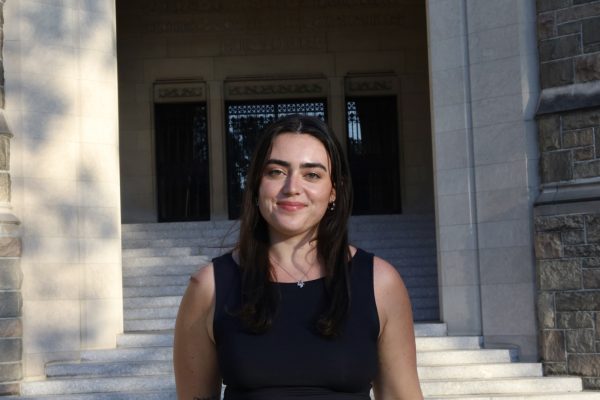Former History Teacher Ron DeSantis Bans AP African American History
The Florida Department of Education (FDOE) sent a letter to the College Board Florida Partnership on Jan. 23 stating that FDOE will be banning the Advanced Placement (AP) African American Studies course from being taught in Florida schools. The reasoning was that the course, in its pilot state, “is inexplicably contrary to Florida law and significantly lacks educational value.”
This is just another example of Florida Gov. Ron DeSantis reaching into the spheres of education, believing he is the almighty knower of all that is good and American and only he can protect our children from “woke indoctrination.”
But instead, this is only an attack on education, on history and the necessary understanding of how our society came to be.
Among the topics DeSantis had an issue with are intersectionality, Black queer studies, Black Lives Matter, Black feminist literary thought and the reparations movement. The new official framework for the course, shortly released after DeSantis’ ban, omits many of the topics he disagreed with, along with certain (and very important) scholars like bell hooks and Angela Davis. While this isn’t surprising coming from the same government that passed the “Don’t Say Gay” law last year preventing certain classroom discussions surrounding gender and sexual identity, it is every bit as depressing and disappointing.
As if this situation couldn’t get any worse, in early February following the backlash of the AP African American Studies ban, DeSantis suggested that Florida should do away with College Board altogether.
This would be detrimental to high school students in Florida, as the state has one of the highest participation rates in AP courses in the U.S. Passing the AP exam with a high score can transfer as college credit to many higher education institutions, and a good SAT score puts you higher on the acceptance list than those who haven’t, even though many institutions have made it optional following COVID-19.
As exploitative as College Board can be, it is necessary for students to participate in their programs if they want to pursue higher education. Other advanced courses, like International Baccalaureate and dual-enrollment programs, are not as easily accessible as College Board. If Florida were to stop their collaboration with College Board, thousands of students would be negatively impacted, especially those who wouldn’t be able to afford to take AP classes or standardized testing outside of school-funded programs.
Education’s main priority should be to better the students’ knowledge and equip them with the necessary tools to succeed in life. Providing ethnic studies classes can help students in many more ways than just learning about history. A study done on a ninth-grade ethnic studies class offered by the San Francisco Unified School District (SFUSD) showed that these classes have strong, positive impacts on participating students, including more consistent attendance, higher graduation rate and increased likelihood of attending higher education. When these students, especially students of color, got to study in-depth about different cultures, they were able to view history through their own perspective, which is incredibly important when considering that roughly 54% of all U.S. public school students are persons of color.
Ironically, in 1994, Florida became the first state to mandate the teaching of African American history in schools. With everything DeSantis is fighting against, it seems almost impossible that Florida is the state that started passing laws to teach Black history.
Through this, DeSantis has made his possible 2024 presidential campaign about the eradication of history, banning vital cultural topics and controlling the classroom, all under the guise of education reform.
While current Florida politics are interesting in a majorly infuriating way, I will admit that I am not well-versed in the overall aspects of DeSantis’ time as governor. I am, however, adamant about the need for a well-rounded education and the importance of schools being a safe-space for students to learn and live — both of which DeSantis has proven he does not really care about outside of his personal political agenda.
Given the situation, I was surprised to find that DeSantis was actually a history teacher at Darlington School in Georgia prior to his political career. With his experience working in education, it should be assumed that he wants the students of Florida to learn as much as they can, but his actions are contradicting that assumption. If DeSantis truly cared for students, he wouldn’t limit what they could learn. He wouldn’t ban history classes, no matter how “controversial” they are. The bright side of AP classes is that they are optional — no one is required to take them. It’s a choice, and it should be the students’ choice, but DeSantis wants to decide for them.
When we limit what students can learn, we limit their knowledge of the world. We remove opportunities for these students to grow into well-rounded people. We hurt the students who just want to be seen in a textbook, to see their history laid out in front of them in a way that isn’t solely from the lens of their ancestors’ conquerors. These students deserve the opportunity to understand, to grow, to learn.
As renowned Tallahassee pastor Rev. Dr. R.B. Holmes Jr. said, “Black history is not inferior, and Black history does not lack educational value.” Once DeSantis and the FDOE can finally understand this, maybe our country will start making some progress.
Hannah Boring, FCRH ’25, is an English major from Annapolis, Md.

Hannah Boring is a senior from Annapolis, Md., majoring in English and minoring in communication and culture. She has spent every semester thus far sitting...










































































































































































































